
| Who We Are | ThinkerTools Research Group Members |
| ThinkerTools Principal Researchers | ||
Barbara Y. White Professor of Science, Math, and Technology Education University of California at Berkeley |
Barbara White is Professor of Science, Math, and Technology Education at the University of California at Berkeley, where she chairs the Graduate Group in Science and Math Education and co-directs the Masters and Credential Program in Science and Math Education. Professor White also serves on the editorial boards for the International Journal of Artificial Intelligence in Education and for the Journal of Interactive Media in Education. She is best known in cognitive science for her work on conceptual models, intermediate abstractions, and model progressions, in artificial intelligence for her work on modeling and simulation, particularly qualitative modeling, and the design of intelligent, computer-based learning environments, and in science education for her work on innovate approaches to teaching physics and scientific inquiry. Professor White's professional interests are in making science and scientific inquiry interesting and accessible to a wide range of students and teachers. She has undertaken a variety of projects concerned with the design of computer-based learning environments and their relationship to theories of human learning, understanding, and problem solving. She is also concerned with developing and evaluating new instructional approaches, centered around these environments, that enable students to work together to develop an understanding of the processes of scientific modeling and inquiry, while they also develop a deep understanding of the subject matter along with widely applicable cognitive, social, and metacognitive capabilities. |
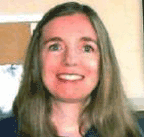 |
| John R. Frederiksen Professor of Education University of Washington |
John Frederiksen’s research concerns the application of the cognitive sciences to learning and instruction within both classroom settings and computer-based learning environments. His work involves experimental cognitive psychology, artificial intelligence, and educational measurement. Recent research focuses on how middle school science students can develop an understanding of scientific inquiry processes and apply this knowledge in creating models of scientific phenomena. He applies cognitive theories to educational practice, and uses evaluations of instructional processes and outcomes to illuminate further development of cognitive theory. He has served as a principal research scientist and director of the Cognitive Science Research Group of the Educational Testing Service, and as a member of the planning group of the Center for Performance Assessment of Educational Testing Services (ETS). He is currently a Professor of Education at the University of Washington in Seattle. His recent publications include "Dynamic Mental Models in Learning Science: The Importance of Constructing Derivational Linkages among Models," in the Journal of Research in Science Teaching (with B. Y. White, et al., 1999); "Metacognitive Facilitation: An Approach to Making Scientific Inquiry Accessible to All," in Teaching in the Inquiry-Based Science Classroom, edited by J. Minstrell, et al. (with B. Y. White, in press); "Video Portfolio Assessment: Creating a Framework for Viewing the Functions of Teaching," in Educational Assessment (with M. Sipusic, et al., 1998); and "Inquiry, Modeling, and Metacognition: Making Science Accessible to All Students," in Cognition and Instruction (with B. Y. White, 1998). |
 |
| Allan Collins Professor Emeritus Northwestern University |
Allan Collins is Professor Emeritus at Northwestern University. He is a member of the National Academy of Education, a fellow of the American Association for Artificial Intelligence, and served as a founding editor of the journal Cognitive Science and as first chair of the Cognitive Science Society. He is best known in psychology for his work on semantic memory and mental models, in artificial intelligence for his work on plausible reasoning and intelligent tutoring systems, and in education for his work on inquiry teaching, cognitive apprenticeship, situated learning, epistemic games, and systemic validity in educational testing. From 1991 to 1994 he was Co-Director of the US Department of Education’s Center for Technology in Education centered at Bank Street College of Education. In recent years he has been developing a theory of epistemic forms and games. Epistemic forms are the recurring forms that are found among theories in science. Some of the different forms that occur are stage models, hierarchies, aggregate-behavior models, system-dynamics models, and production systems. Inquiry in different disciplines involves mastering how to carry out investigations of phenomena guided by one or more of these target structures. Epistemic games refer to the set of rules and strategies that scientists follow when they carry out an inquiry. |
 |
| ThinkerTools Project Members | ||
Marcela Borge cela54@berkeley.edu |
Marcela Borge is a Ph D. Candidate in Cognition and Development, Education in Math Science and Technology, at the University of California at Berkeley. She has lived in the Bay area for most of her life. Her research interests include developing students' collaborative learning and problem solving skills, behavior regulation, and educational software development. As a graduate student, she has spent a great deal of time doing research on collaborative learning, behavior regulation, and educational software development. Her dissertation is a curriculum development project, focusing on helping students to learn how to monitor and regulate collaborative interactions in a science classroom. Students learn to "manage" assigned collaborative roles while immersed in a collaborative project on the human body. |
 |
| Karen Bush karbush@scglobal.net |
Karen Bush has a B.A. in Human Biology, Stanford University (1987) and an M.A. in Science Education and Life Science Teaching Credential, UC Berkeley (1996). Karen has been teaching science at Longfellow Middle School since 1996. She also works with students in the science credential program at UCB, teaching a methods class and supervising them in their school placements. Karen's interests include: • increasing the participation of minority students in science • creating supportive curriculum and learning environments in science for lower achieving students • improving training and support for science teachers • reducing burnout and increasing longevity of science teachers through the creation of improved curriculum and manageable learning environments. |
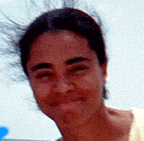 |
| Eric Eslinger eslinger@udel.edu |
Eric Eslinger is an assistant professor at the University of Delaware. His teaching interests are in science education. Eric received his Ph.D. from the University of California at Berkeley. |
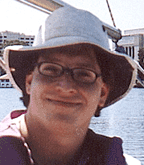 |
| Suzanna Loper sjloper@berkeley.edu |
Suzanna Loper works with the Seeds of Science/Roots of Reading project of GEMS, at the Lawrence Hall of Science, Berkeley, developing elementary school science curricula that integrate inquiry science with literacy. |
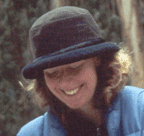 |
| Tatiana Miller tatianamiller@sbcglobal.net tatiana@ucsc.edu |
Tatiana F. Miller is in her first year as a doctoral student at University of California at Santa Cruz in the specialization of language and literacy and is part of the research team for the VINE Project (Vocabulary Innovations in Education). She earned her B.A. in Environmental Studies and Minor in Politics from UCSC (1995), and went on to teach science to fifth and sixth grade students in the outdoor classroom at Foothill Horizons Outdoor Science School and the Santa Cruz County Outdoor Science School. Her science teaching in an informal learning context includes environmental interpretive work for the National Park Service, the U.S Forest Service, and the Massachusetts Audubon Society. Tatiana earned her M.A. in Teaching and a multiple subject teaching credential with cross-cultural language and academic development (CLAD) certification from UCSC (2001). She spent the past five years teaching fifth grade at Bay View Elementary School in Santa Cruz, CA, collaborating with members of the ThinkerTools Research Group to design and implement inquiry learning curriculum in both science and language arts content areas. |
 |
| L.J.C. Shimoda ljc@shimodaworks.com info@thinkertools.org |
L.J.C. (Linda) Shimoda is a freelance artist working for a variety of clients and in a wide range of media. She creates the art and design for books and their covers, develops logos and icons, most of which are used on the Web, designs Web sites and software, and works on many other projects that incorporate her creative skills. Linda has worked in media ranging from pen-and-ink to photography, digital to brush, and oil to found-objects. Linda has worked with Professor Barbara White and her ThinkerTools research group for a number of years, enjoying the duties of graphic art and design, software and Web design and graphics, database management, and any project requiring her hidden talents of organization and pestering people into doing something. |
 |
| Todd Shimoda todd@shimodaworks.com |
Todd Shimoda graduated from the SESAME (Science, Engineering, and Mathematics Education) doctoral program at the University of California, Berkeley. He has been a professor at Colorado State University and is a visiting researcher at Cal working on the Web of Inquiry Project. His interests include intelligent agent design, cognitive science, epistemology, and science and health education. He has published in books and journals including Science Education and the Journal of Artificial Intelligence in Education. | 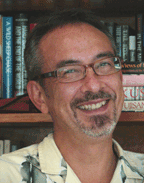 |